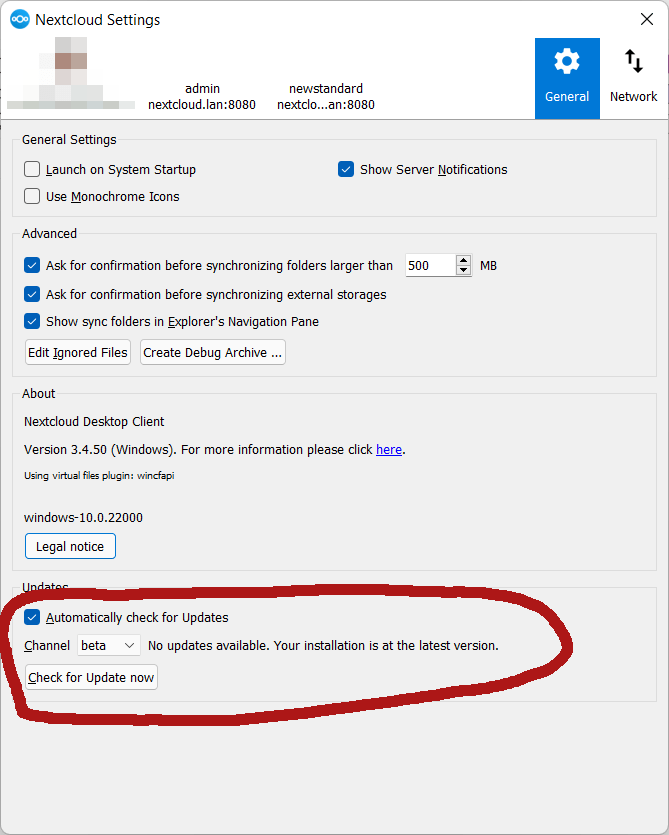Originally published at: https://nextcloud.com/blog/nextcloud-23-0-3-and-22-2-6-are-out-bringing-a-series-of-bug-fixes-and-improvements/
Update your server!
Nextcloud 23.0.3 and 22.2.6 are released! As always, minor releases include stability and security improvements that are designed to be a safe and quick upgrade. We also published a minor bugfix release of the desktop client and a test version of the upcoming 3.5 client release!
What’s new?
Among the interesting changes are an option to dis-allow the creation of local storage connections from the web interface. This is designed for situations where the sysadmin managing the system graphically should have less ‘power’ than the admin on the back-end administering through the CLI. Local storage access could be a security issue. This can now be configured in config.php.
Another notable change is that it is now possible to write the audit log to syslog and systemdlog. This has been documented. Besides these slightly larger changes, dozens of smaller fixes and improvements make user and admin life better in this set of releases.
You can find the full changelog of fixes and improvements for 23.0.3 and 22.2.6 on our website.
Note: running web-facing software without regular updates is risky. Please stay up to date with Nextcloud releases of both the server and its apps, for the safety of your data! Customers can always count on our upgrade support if needed!

There’s a option for a beta channel now!
Fresh Desktop Clients!
The desktop client team also released a minor version, 3.4.4, with a few small fixes:
- Do not remove files from a Group folder and its nested folders when it is renamed or removed while not allowed.
- Bugfix/prevent overflow with mtime
- Old submodule url does not work anylonger
For those of you up for some testing, desktop client 3.5RC1 is also ready for some attention! You can get it here.
One feature that comes with this new release is the ability to choose the Beta channel for releases to help test upcoming RC’s! Our team also brought this feature back to the 3.4 series, it is already in 3.4.3 and 3.4.4 so you can just set your client in the settings to the beta channel to test the RC out!
Get updating!
End of public support for Nextcloud 21
Nextcloud 21 is not being maintained, so start preparing your move to 22 or 23 if you haven’t yet, or check out or Nextcloud Enterprise offerings with up to 5 years long term support. As always we strongly recommend you update to ensure you have a secure and reliable content collaboration platform that respects your digital sovereignty!
Stay safe: keep your server up-to-date!
Minor Nextcloud releases are security and functionality bug fixes, not rewrites of major systems that risk user data! We also do extensive testing, both in our code base and by upgrading a series of real-world systems to the test versions. This ensures that upgrades to minor releases are generally painless and reliable. As the updates not only fix feature issues but also security problems, it is a bad idea to not upgrade!
This is, of course, also true for apps: Keeping them updated has security benefits, besides the new features and other bug fixes.
If you are maintaining a mission-critical Nextcloud system for your enterprise, it is highly recommended that you get yourself some insurance (and job security… who gets blamed if the file handling system isn’t working as expected?). A hotline to the core Nextcloud developers is the best guarantee for reliable service for your users, and the job safety of you as a system administrator.